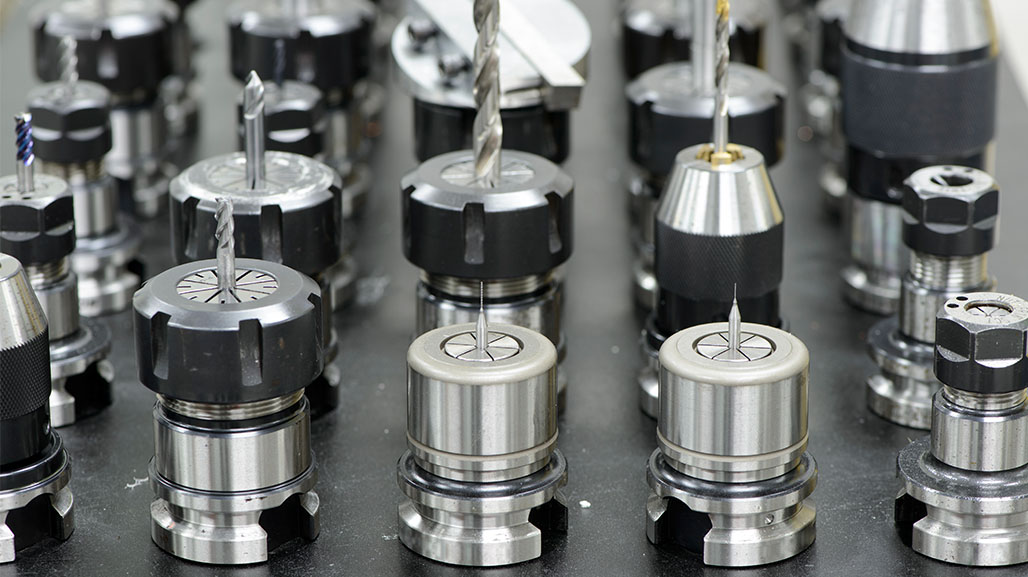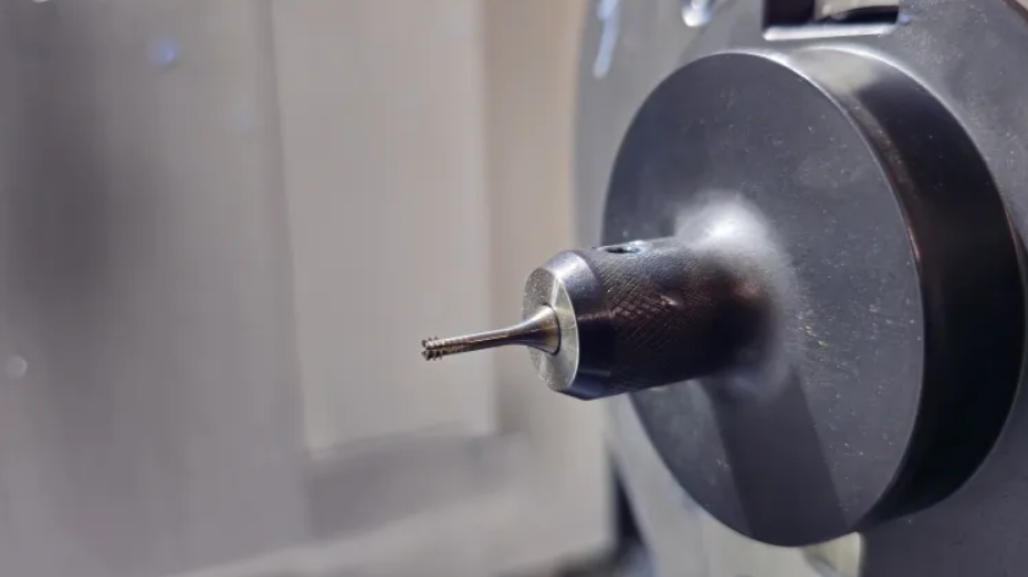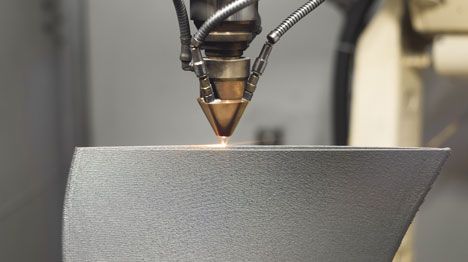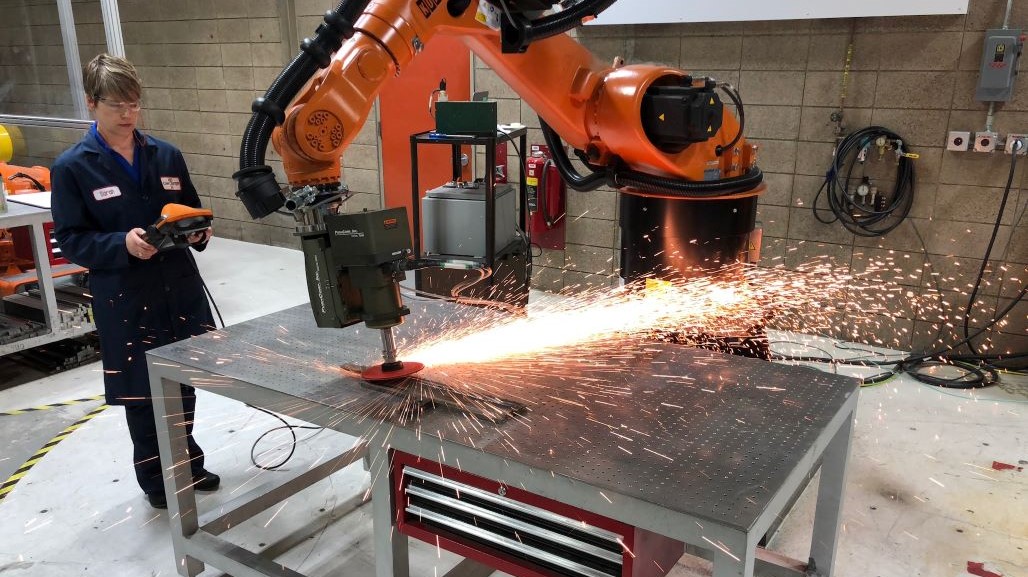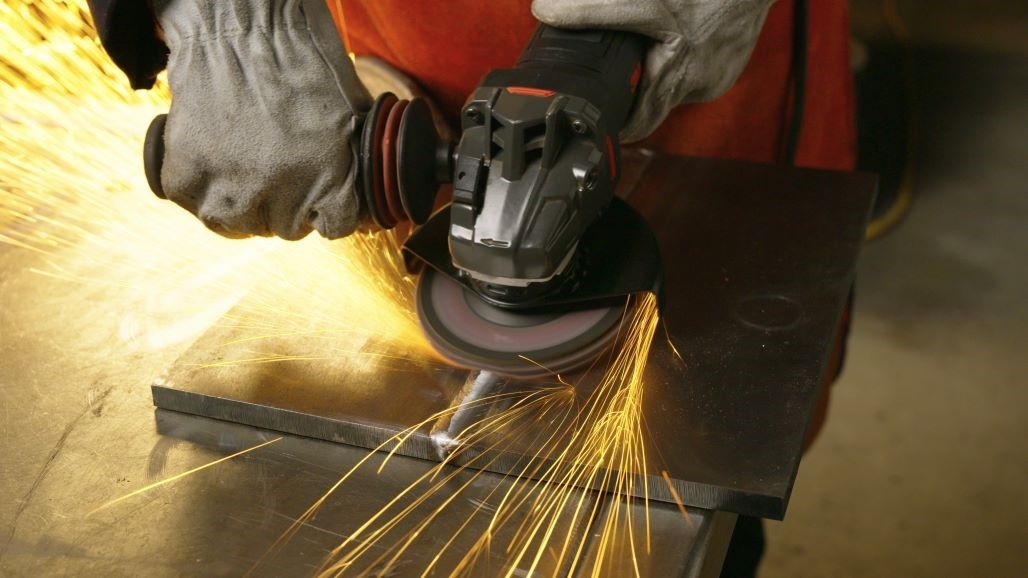With nearly 30 years of manufacturing experience, Aerotech Machining is a powerhouse of precision manufacturing serving the regional needs of its customer base. We talk to the company about its challenges in part-making—and how it leverages an important inventory management and tooling partnership to achieve its profitability goals and objectives.
Bloomingdale, Georgia, home of Aerotech Machining, is less than 15 miles from historic Savanah and its signature Spanish moss-lined streets and live oak trees. Aerotech started as a small, “conventional” machining job shop 27 years ago in 1992.
Today, it is a thriving manufacturing business consistently seeking new ways to become more efficient and profitable—and keep its customers happy over the long term. Growth for this mid-sized, precision powerhouse has come from using the principles of lean manufacturing and leveraging smart, technological innovation in CNC machining systems.
It has also been blessed by hiring talented machinists and quality inspectors—an area the company’s owner takes pride in.
We recently spoke about these material and manufacturing challenges for Aerotech Machining and discussed the methods and strategies for handling them week in and week out.
Manufacturing Success from Industry Diversification
Aerotech’s success has also been fueled by a conscious choice to diversify the parts it makes across distinct industry segments. The company has been very strategic about maximizing the manufacturing opportunities that local and regional industries offer, such as business aircraft and cotton ginning, for example.
“We’ve grown from humble beginnings with a couple of machinists to now having 35 CNC machines and 50 employees,” says Joey Jones, the founder and president of Aerotech. “We serve the aerospace, power generation, agriculture and railway industries.”
Aerotech is making very different parts for these segments—and they all come with their own unique challenges, specifications and nuanced part-making strategies. The company has expertise in conventional and CNC machining, of course, waterjet cutting, assembly, kitting, and quality assurance. Of the 35 CNC machines on its 45,000-square-foot floor, nine of them are 5-axis CNCs. The majority are 3- and 4-axis systems.
Here are a few part-making areas and challenges that Jones explained the company manages every day.
Aerospace: Typical Titanium Issues
Parts: Structural and interior parts for business aircraft
Materials: Titanium
Challenges: Hard to cut and slow to machine
Power Generation: Hardened Materials
Parts: Supports for turbines
Materials: Hastelloy, Inconel, titanium
Challenges: Hardened materials can be tough to machine and tool
Agriculture: Quality Inspection
Parts: Large parts for cotton ginning systems including shafts, waterjets, structural and rotating assemblies.
Materials: Hastelloy, carbon steel
Challenge: Getting the right measuring tools, such as large micrometers and long calipers—in the 60 to 80 inches range.
Because of the part sizes and necessary measurement tools, inspection can be a slow endeavor. It requires multiple people to work with and inspect the parts regularly.
“The solution is to put highly competent people on these inspection jobs,” says Jones. “But we are also breaking ground on a state-of-the-art metrology lab that will be completed February 2020.”
For railways, Aerotech makes track systems and control valves that are mainly from steel—so they don’t run into many material challenges there at all.
Managing KPIs By Improving Tool Life, Reducing Tooling Usage and Monitoring Machine Productivity
Given the variety of materials Aerotech uses in its part-making, it’s not a surprise that the company has such diverse tooling needs. And it’s not easy to manage it all on its own.
“Of course, managing tooling is a frequent challenge,” says Jones. “The materials are getting more and more difficult to machine and then you have areas like heat treatment specs to manage, so, yes, we see many tooling challenges.”
What is the biggest material and tooling challenge today?
“Titanium is the largest challenge we have,” says Jones. “Trying to get the metal removal rates up to where they need to be is an area we’re consistently focused on. And they need a lot of tooling.”
Where would Aerotech like its metal removal rates to be? Jones laughs.
“Equivalent to aluminum,” he jokes. “No matter how fast we are running, we are constantly trying to improve on it.”
Are you frustrated with titanium, too? Read “Machining Titanium: Find The Right Milling Tools For Superalloys.”
All kidding aside, there are important machine and tooling KPIs that drive Aerotech’s business. The two KPIs Jones and team measure the operation against include spindle utilization and tooling usage.
They don’t have an exact cubic inch they target for metal removal rates—though they do get technical assistance and guidance from MSC metalworking specialists and weekly visits from local representatives.
“We measure them weekly,” says Jones. “We look at how often a spindle is working—which includes how many hours the machine is available versus how many hours it actually ran.”
To help effectively and efficiently manage tooling use, Aerotech leverages MSC vending systems.
“We’ve been using it for about the last three years. And we’re adding more to our system now,” says Jones.
Vending has many direct benefits, including putting lean manufacturing principles directly to work: You only use what you need. And you can track how often tools are being pulled from the vending system.
The sensor technology within the vending system allows usage tracking and replenishment to be automated. It also keeps the shop floor organized, clean, accountable and secure with an ID card system. Before a machinist grabs a tool or other supply, they have to use their ID to open the vending drawer.
Finding the Right Tools Takes Knowledge and Experience
Every minute of machining time matters for every manufacturing shop. To help get the most out of its machining, Aerotech works very closely with MSC on its operations—and on making sure the company has the right tool for whatever the application.
In one of the MSC weekly visits to the shop, metalworking specialists were able to identify an opportunity for improvement milling using an Iscar tool.
“I know for this particular tool we had nine-minute cycle time, and with the newer tool, we’ve been able to reduce the cycle time just south of six minutes now,” says Jones. “This means we now have more spindle time to use on those machines.”
This means more parts are able to be manufactured—and there’s a faster time to realize profit.
“Typically what will happen is, Michelle [Ozvath, an industrial manufacturing executive from MSC] will walk with us through the shop floor once a week and we’ll talk to the machinists and find out areas where things might need some help,” says Jones.
And that involves sometimes bringing in different tooling makers—and allowing Aerotech to test out different tools to find the right grade for the application—whether for steel or titanium, what have you.
In this specific case, gaining three minutes of cycle time and using a different tool saved Aerotech roughly $12,000 a year and increased productivity by 214 percent. Tools designed for these specific applications also equate to longer tool life and a reduction in operation costs.
The right tools mean machines are up and running. There’s less downtime, less setups and less tooling changeovers—which eat into operations and machine operator hours.
“The shorter the cycle time, the more parts we can put through the machine per hour. The more parts we can machine per hour, the more we can invoice, so the return on the investment is much shorter if we can get the parts through the machine faster,” explains Jones.
And how does Aerotech value the one-to-one operational insights that MSC brings every week?
“It’s priceless,” says Jones. “MSC has helped us with everything. We even bought a set of portable, modular offices from them.”
In the near future, Aerotech Machining is getting into precision welding and precision sheet metal work inside the four main industries that it already serves to help keep the business evolving.
To help keep programming and machining skills fresh, Aerotech brings in training from Mastercam and others—and works with Savannah Technical College to bring in fresh talent. The company also brings in students from local high schools for field trips to understand the business.
“We are constantly looking for software that helps simplify CNC machining—especially 5-axis machining,” says Jones.
And to stay ahead of the curve, Jones pays close attention to what is happening with 3D printing and additive manufacturing namely for aerospace, as well as friction stir welding.


